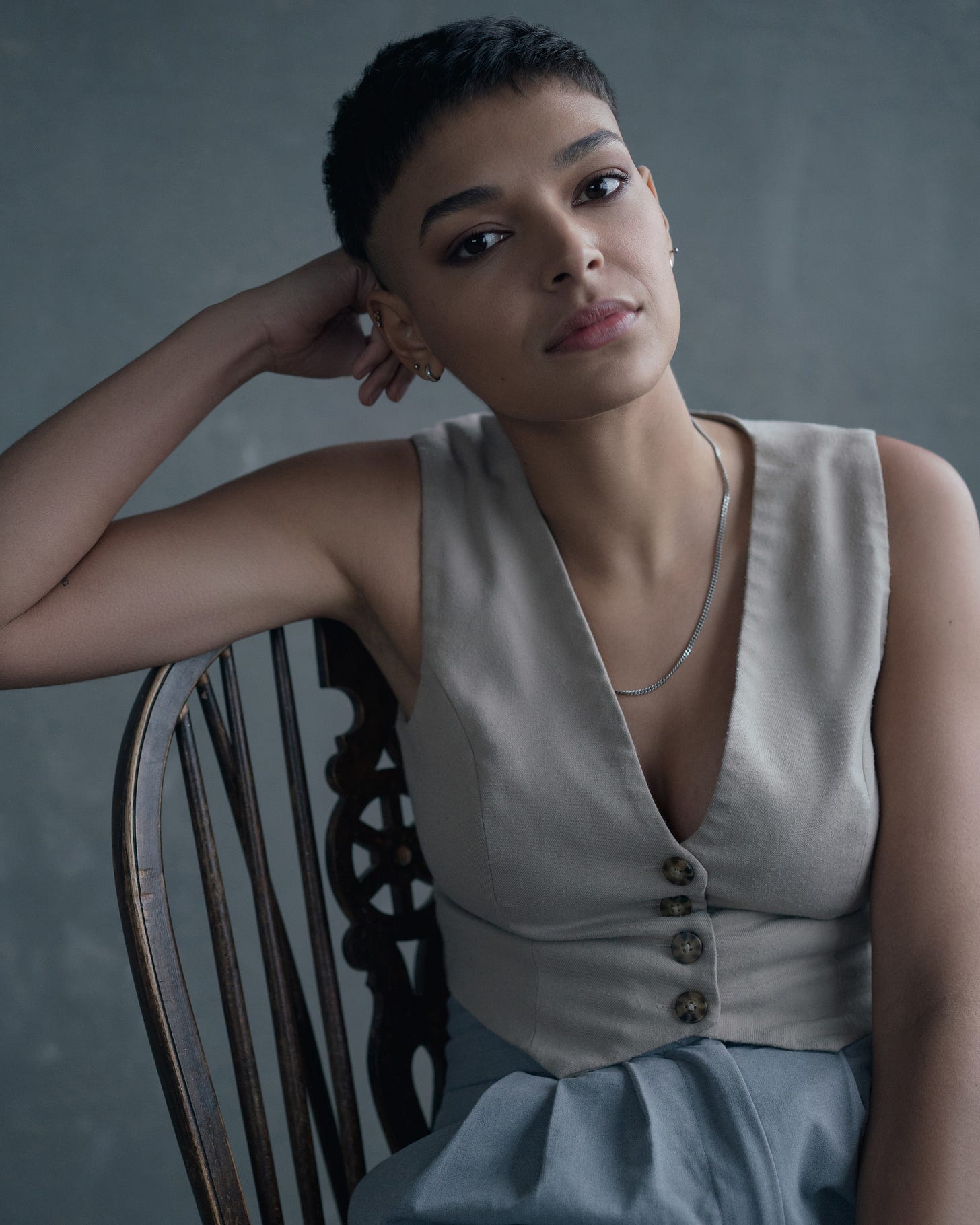Jordan Alexandra: “Why does a white person get to define how I'm seen in society?”
The actor on not living in fear, choosing her roles carefully and the heartbreak of being challenged
Hi, welcome back to Mixed Messages! This week I’m speaking to actress Jordan Alexandra, who is of mixed Jamaican, Barbadian and white British heritage. Jordan is set to play Guinevere in The Winter King on ITVX later this year, and has also appeared in Boiling Point, Mammals and Grantchester. As an actor, Jordan has a lot to say on how looks impact cast…


